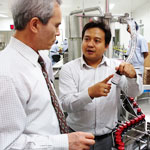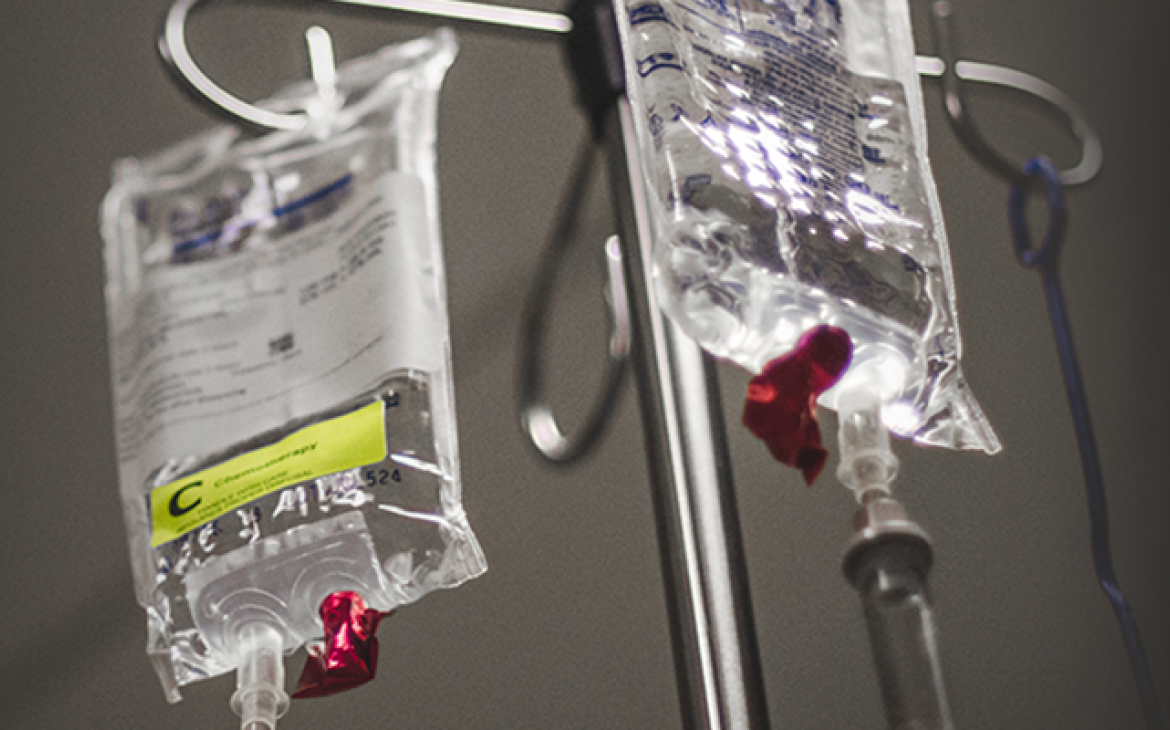 Tuberculosis (TB) is a curable disease, but worldwide, it still kills three people every minute. TB is so prevalent because it is airborne and highly contagious. It ranks second only to HIV as a cause of death from a single infectious agent. In 2012 alone, 8.6 million people fell ill with TB and 1.3 million died. [i]
Tuberculosis (TB) is a curable disease, but worldwide, it still kills three people every minute. TB is so prevalent because it is airborne and highly contagious. It ranks second only to HIV as a cause of death from a single infectious agent. In 2012 alone, 8.6 million people fell ill with TB and 1.3 million died. [i]
To tackle the disease, the World Health Organization (WHO), the Stop TB Partnership and public health organizations worldwide initially focused on expanding access to TB treatment. Soon, the overall rate of TB cases began to decline. But, a new problem arose – the number of people diagnosed with multi-drug resistant TB (MDR-TB) began to rise. Between 2011 and 2012, the number of MDR-TB cases nearly doubled.
Poor Quality Anti-TB Medicines a Cause for Concern
In 1999, WHO was alarmed by the results of a small study on the quality of anti-TB drugs widely used in public treatment programs in Africa and around the world.
Simple quality control tests showed the key drugs were present, but more sophisticated tests showed that in over half of the samples, the drugs were not being absorbed by the patients. The study suggested the medicine was clinically useless. Not only would the medication be unlikely to successfully treat TB, it could have the opposite effect – by promoting drug resistance and potentially spreading the disease. [ii]
The study convinced WHO staff that better quality assurance was needed and was one impetus for the creation of the WHO Prequalification Programme (PQP). WHO established PQP in 2001 to assess the quality, safety and efficacy of essential medicines procured by United Nations agencies. Although initially focused on essential medicines for treating TB, HIV/AIDS and malaria, the program was later expanded to include medicines for reproductive health, anti-diarrheal treatment for children, and neglected tropical diseases.
USP and USAID - Promoting the Quality of Medicines
Through its Promoting the Quality of Medicines (PQM) Program, U.S. Pharmacopeial Convention (USP) is making significant contributions to the global fight to Stop TB.
Funded by the U.S. Agency for International Development (USAID) and implemented by USP, PQM works to expand access to essential medicines and improve national capacity for sustainable manufacturing and monitoring of medicines quality in under-resourced countries. As part of these efforts, PQM helps manufacturers achieve WHO prequalification for essential medicines.
The PQM program has helped four key anti-tuberculosis drugs achieve WHO Prequalification status: three second-line medicines and one first-line treatment.
- Cycloserine, 250 mg capsule produced by Korea-based Dong-A Pharmaceutical Co. Ltd;
- Capreomycin API produced by Zhejiang Hisun Pharmaceutical Co Ltd. of China – the first second-line anti-TB API for injectables and the first API obtained directly from fermentation;
- Levofloxacin API by Zhejiang Langhua Pharmaceutical Co Ltd;
- Isoniazid API by China Second Pharmaceutical Co. Ltd., a first-line treatment.
A fifth anti-TB drug is expected to achieve WHO Prequalification with PQM’s technical assistance in the near future.
WHO Prequalification Programme a Vital Tool for Global Health Organizations
The WHO list of prequalified medicines has become a vital tool for any agency or organization purchasing medicines in bulk (such as the Global Fund, nongovernmental organizations, and national procurement agencies).
It helps ensure that scarce resources are not spent on medicines of unknown quality, safety or efficacy. In 2010, WHO expanded the PQP program to include Active Pharmaceutical Ingredients (APIs), the essential building blocks of medicines. By the end of 2012, the WHO List of Prequalified Medicinal Products contained 316 medicines for priority diseases.
As of June 2014, PQM is providing technical assistance to 69 projects across 15 countries representing 27 APIs and 42 finished pharmaceutical products. All technical assistance is provided by PQM at no cost to the manufacturer as part of the USAID-funded program.
What Does the Prequalification Process Involve?
Prequalification consists of five components.
- Invitation: The WHO PQP issues an invitation to manufacturers to submit an expression of interest (EOI) for evaluation of specific products.
- Dossier submission: The interested manufacturer provides a comprehensive set of data about the quality, safety and efficacy of the product submitted for evaluation.
- Assessment: A team of PQP assessors comprising WHO staff and experts from national regulatory authorities worldwide evaluates all the data presented.
- Inspection: A team of inspectors verifies that the manufacturing site(s) for the finished pharmaceutical product and its active pharmaceutical ingredient(s) comply with WHO good manufacturing practices. They also verify that any contract research organization that conducted any clinical studies related to the product complies with WHO good clinical practices and WHO good laboratory practices.
- Decision: If the product meets the specified requirements, and the associated manufacturing site(s) and contract research organization(s) are compliant with WHO standards, the product is added to the WHO list of prequalified medicinal products.
PQM provides a wide range of technical assistance through each step of the prequalification process. PQM and WHO present workshops in countries where essential medicines are manufactured to offer assistance. For companies who participate, PQM:
- Develops an implementation plan and timeline;
- Provides training in good manufacturing practices, good laboratory practices and other quality assurance topics;
- Helps the manufacturer prepare the product dossiers for submission to WHO;
- Provides reference standards and comparator products for quality testing;
- Prepares the manufacturer for the WHO PQP inspection by conducting mock audits;
- Issues corrective and preventive action plans;
- Follows up to ensure corrective measures are taken.
In addition to expanding access to quality-assured essential medicines and lowering the cost of these life-saving treatments, WHO Prequalification helps strengthen and improve local economies by stimulating a mature industry that markets quality-assured products.
USP & USAID Partnership
Since 1992, USP has worked cooperatively with the USAID to help developing countries address critical issues related to poor quality medicines.
This partnership operated as the Rational Pharmaceutical Management Plus Program (1992-1999), with activities primarily aimed at providing drug information on rational use, and as the USP Drug Quality and Information (DQI) program (2000-2010) when the focus turned to drug quality.
In 2009, USAID awarded USP a five-year, $35 million cooperative agreement to establish a new, expanded program — Promoting the Quality of Medicines in response to the growing proliferation of counterfeit and substandard medicines around the globe. In 2013 USAID extended the PQM program for five years (through September 2019), increased its funding to $110 million, and expanded the geographical reach of the program.
More information about the Stop TB Partnership can be found at www.stoptb.org
[i] WHO Global Tuberculosis Report 2013 Fact Sheet.
[ii] Ellen F. M. ‘t Hoen, Hans V. Hogerzeil, Jonathan D. Quick, and Hiiti B. Sillo. A quiet revolution in global public health: The World Health Organization’s Prequalification of Medicines Programme. Journal of Public Health Policy Vol. 35, 2, 137 – 161.


